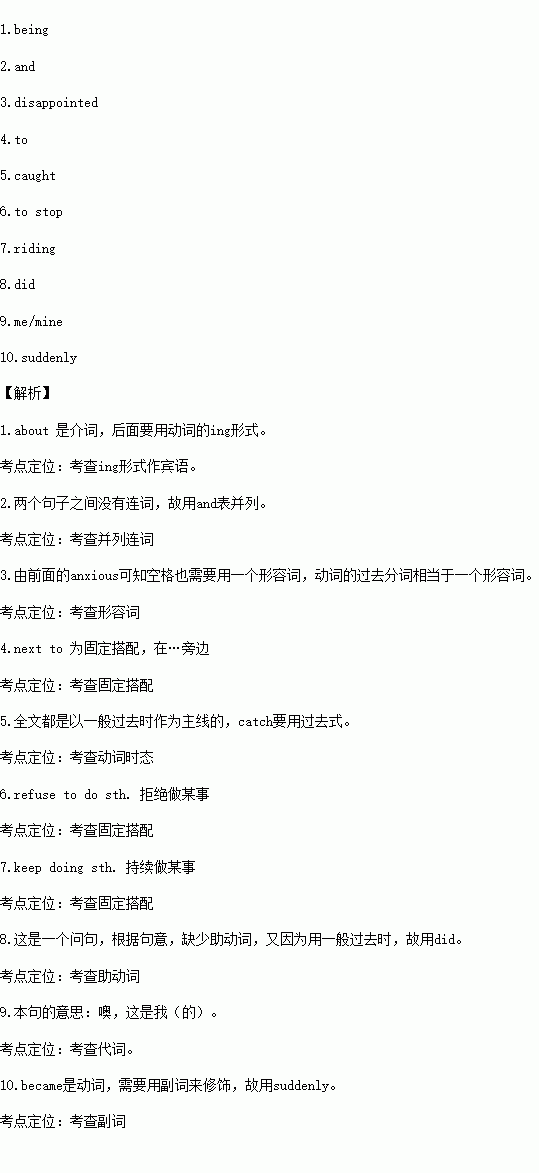题目内容
单词拼写(共1小题)
阅读下面材料,在空白处填入适当的内容(不多于3个单词)或括号内单词的正确形式。
One morning, I was waiting at the bus stop, worried about __1._ (be) late for school.
There were many people waiting at the bus stop, ___2.___ some of them looked very anxious and __3.__(disappoint) .when the bus finally came, we all hurried on board.I got a place next ___4.___ the window, so I had a good view of the sidewalk.A boy on a bike ____5.__ (catch ) my attention.He was riding beside the bus and waving his arms.I heard a passenger behind me shouting to the driver, but he refused ___6.___(stop) until we reached the next stop.Still, the boy kept ___7.__(ride).He was carrying something over his shoulder and shouting.Finally, when we came to the next stop, the boy ran up to the door of the bus.I heard an excited conversation.Then the driver stood up and asked, “____8.__ anyone lose a suitcase at the last stop?” A woman on the bus shouted, “Oh, dear! It ‘s ____9.___ (I )”.She pushed her way to the driver and took the suitcase thankfully, Everyone on the bus began talking about what the boy had done, and the crowd of strangers ___10.__(sudden) became friendly to one another.

